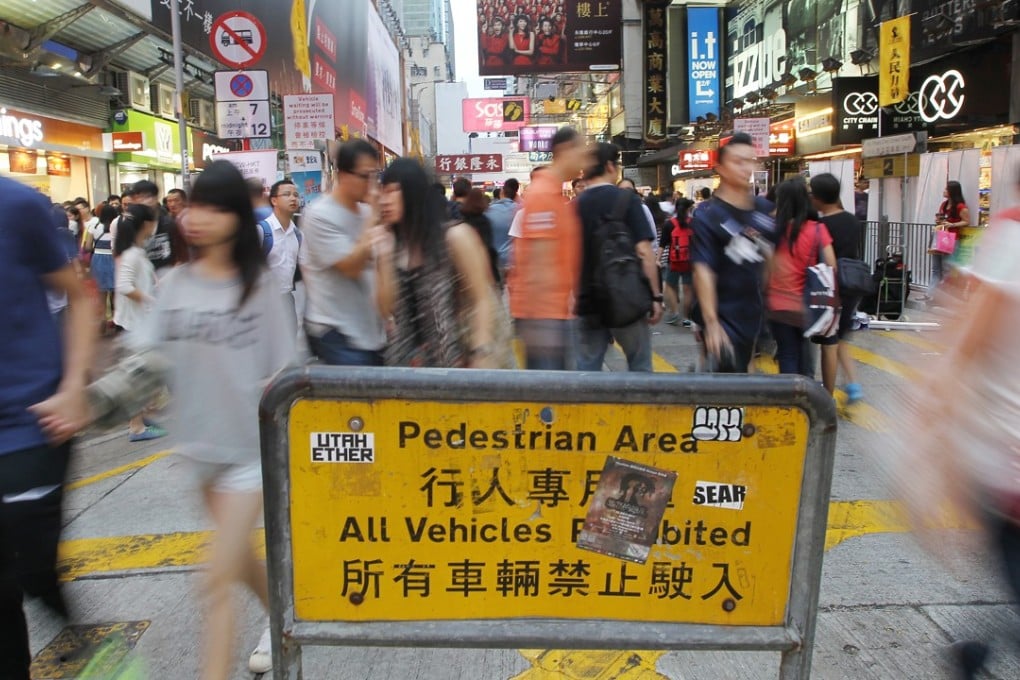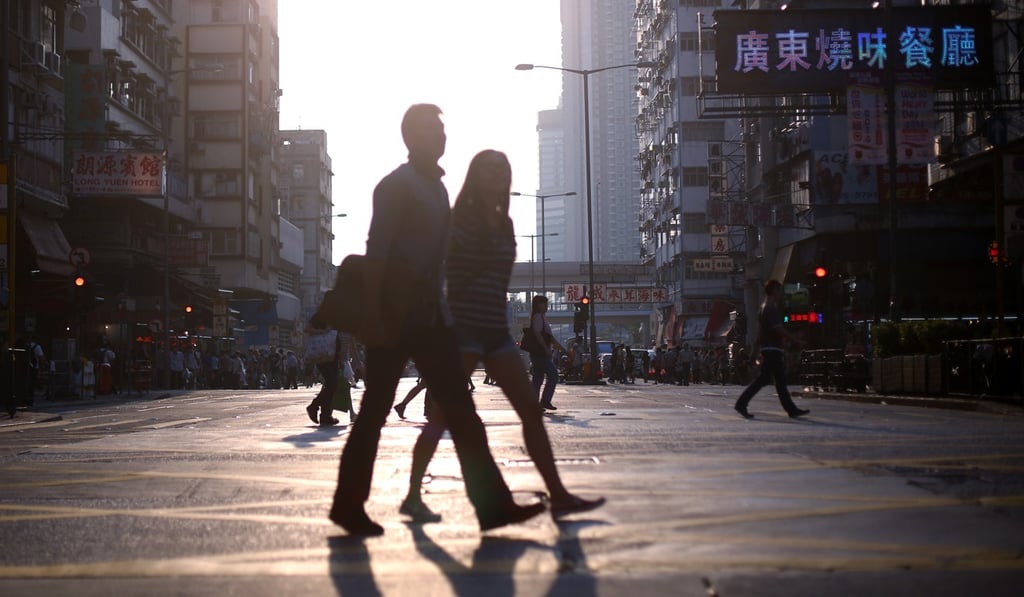How poor regulation is killing the vibe on Hong Kong’s streets
Carine Lai says bureaucratic inefficiencies and outdated rules are to blame for our poorly managed streets. The government is failing at the two main tasks: encouraging vibrant activities and mitigating the nuisances

Imagine that, on your way home one evening, you stop at the neighbourhood fruit stall – the stallholder recommends the strawberries. You pass the outdoor cafe where you sometimes eat lunch, squeeze past a row of mobile phone subscription salesmen, and make your way down the street, dodging delivery trolleys.
Finding a stack of beauty salon pamphlets suddenly shoved into your hands, you locate an overflowing bin and carefully deposit them inside. To your surprise as you reach the MTR station, a busker is performing. This one has a decent singing voice, so you drop a few coins in her guitar case.
Which of these encounters add to your experience of the city, and which detract from it? Which activities are unpleasant but necessary, and how should we best accommodate them? What activities shouldn’t happen on the street? What is a fair allocation of space? Should those using public space for commercial purposes have to pay for it? Street management is about all these issues.
A plethora of competing activities takes place on Hong Kong’s crowded streets. If we simply left it to chance or to the market, what took place would result in a tragedy of the commons. This means some degree of street management is necessary. Yet overmanagement would destroy the vibrant street life that makes Hong Kong unique.

